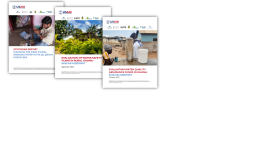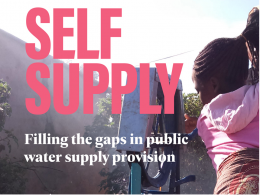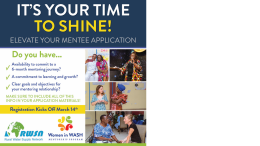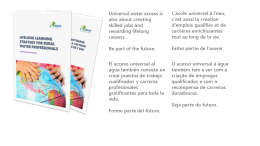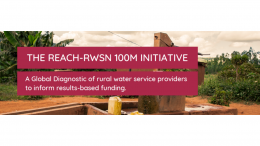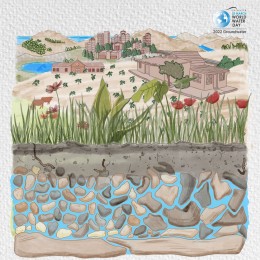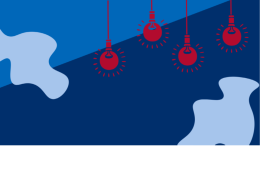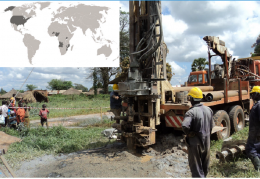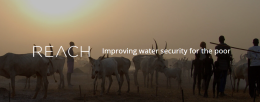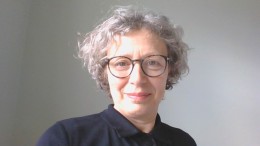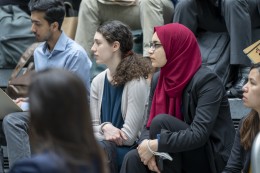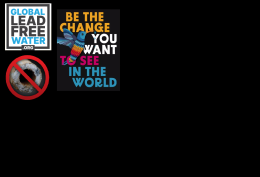Highlights of RWSN's projects, partnerships and knowledge products
Collaborations
New REAL-Water Publications for January 2024
Project start: 2021 • Project finished: 2025
Collaborators: Aquaya Institute, Aguaconsult, KNUST, Safe Water Network, RWSN, Water Mission, UTS-ISF
Funder: USAID
Summary
REAL-Water is now in its third year and fieldwork is well underway. In the meantime there is a pipeline of new publications from the early work:
New Book: Self-supply - Filling the gaps in public water supply provision
Project start: 2021 • Project finished:
Collaborators: Dr Sally Sutton (Ind), Dr John Butterworth (IRC), Practical Action Publishing
Funder: IRC, SWL Consultants
Myths of Rural Water Supply
Learning from past failures, building on successes
Project start: 2010 • Project finished:
Collaborators: UNICEF, Skat, WaterAid, Water & Sanitation Program, African Development Bank, Swiss Development Cooperation
Funder:
Summary
Ensuring that rural dwellers around the world do not have to walk for hours to collect sufficient and safe drinking water is a huge challenge. In 2010, RWSN published "Myths of the Rural Water Supply Sector" which raises issues for those of us who are involved in trying to improve rural water supplies, whether as donor, Government or NGO; program manager or practitioner. It takes a hard look at our limited achievements, points to areas where our approaches need to be radically improved and sets some challenges.
Mentoring programme / Programme de mentorat / Programa de tutoría
Mentor and mentee registration is now open! L'inscription des mentors et des mentorés est maintenant ouverte ! Ya está abierto el plazo de inscripción para mentores y alumnos.
Project start: 2024 • Project finished: 2024
Collaborators: WASH Agenda for Change, Women in WASH Mentoring Program
Funder: Global Water Center, CARE
Summary
Join the 2024 RWSN Mentoring programme in collaboration with Agenda for Change and Global Water Center - and seize the opportunity to learn from experienced professionals in the water, sanitation, and hygiene (WASH) sectors.Why Should You Apply? We have an exceptional lineup of mentors eager to guide you on your journey. This is your chance to tell us why you're excited about the water sector and what you're passionate about achieving. Remember, competition is fierce, so the more you share about yourself, your goals, and your enthusiasm for the program, the better your chances of success! What Do You Want to Work On? Whether it is advancing your career, sharpening your skills, or making a difference in your community, our mentoring program is tailored to your needs. Share your aspirations with us, and let's work together to make them a reality. The programme is available in English, Spanish, and French.
///
Rejoignez le programme de mentorat 2024 RWSN en collaboration avec Agenda for Change et Global Water Center - et saisissez l'opportunité d'apprendre de professionnels expérimentés dans les secteurs de l'eau, de l'assainissement et de l'hygiène (WASH).
Pourquoi postuler ? Nous disposons d'un groupe exceptionnel de mentors désireux de vous guider dans votre parcours. C'est l'occasion de nous dire pourquoi le secteur de l'eau vous passionne et ce que vous souhaitez réaliser. N'oubliez pas que la concurrence est féroce. Plus vous en direz sur vous, sur vos objectifs et sur votre enthousiasme pour le programme, plus vous aurez de chances de réussir ! Sur quoi voulez-vous travailler ? Qu'il s'agisse de faire progresser votre carrière, d'affiner vos compétences ou de faire une différence dans votre communauté, notre programme de mentorat est adapté à vos besoins. Faites-nous part de vos aspirations et travaillons ensemble pour les concrétiser. Le programme est disponible en anglais, en espagnol et en français.
///
Únase al programa 2024 RWSN Mentoring, en colaboración con Agenda for Change y Global Water Center, y aproveche la oportunidad de aprender de profesionales experimentados en los sectores del agua, el saneamiento y la higiene (WASH).
¿Por qué deberías solicitarlo? Tenemos un grupo excepcional de mentores deseosos de guiarte en tu viaje. Esta es tu oportunidad para contarnos por qué te entusiasma el sector del agua y qué te apasiona conseguir. Recuerda que la competencia es feroz, así que cuanto más compartas sobre ti, tus objetivos y tu entusiasmo por el programa, mayores serán tus posibilidades de éxito. ¿En qué quiere trabajar? Tanto si se trata de avanzar en su carrera profesional, perfeccionar sus habilidades o marcar la diferencia en su comunidad, nuestro programa de mentores se adapta a sus necesidades. Comparte con nosotros tus aspiraciones y trabajemos juntos para hacerlas realidad. El programa está disponible en inglés, español y francés.
Lifelong Learning Strategy / Stratégie d'apprentissage tout au long de la vie
Estrategia de formación continua / Estratégia de aprendizagem ao longo da vida
Project start: 2022 • Project finished: 2030
Collaborators: RWSN
Funder: Open to new partnerships
Summary
RWSN is a global network of rural water supply professionals and organisations committed to improving their knowledge, competence and professionalism, to fulfil RWSN’s vision of sustainable rural water services for all. Both individuals and organisations participate in the network.This strategy presents ways in which the network can continue to create and grow value in the coming 5-10 years:
1. Connect those seeking specialist training and mentoring with those who can provide that support.
2. Build partnerships to identify and fill thematic gaps in capacity development of rural water supply professionals and organisations, at global and regional levels.
3. Act as a broker to support scaling-up of ideas and organisations through training, mentoring, coaching and match-making between potential partners.
4. Providing value for money and easy-to-use, transparent procurement options so that RWSN achieves full cost recovery for providing these services.
We are inviting feedback on our draft Lifelong Learning Strategy
///
Le RWSN est un réseau mondial de professionnels et d'organisations du secteur de l'approvisionnement en eau en milieu rural qui s'engagent à améliorer leurs connaissances, leurs compétences et leur professionnalisme, afin de concrétiser la vision du RWSN de services d'eau durables pour tous en milieu rural. Tant les individus que les organisations participent au réseau.
Cette stratégie présente les moyens par lesquels le réseau peut continuer à créer et à accroître sa valeur dans les 5 à 10 prochaines années :
1. Connecter ceux qui recherchent une formation spécialisée et un mentorat avec ceux qui peuvent fournir ce soutien.
2. Construire des partenariats pour identifier et combler les lacunes thématiques dans le développement des capacités des professionnels et des organisations de l'approvisionnement en eau en milieu rural, aux niveaux mondial et régional.
3. Agir en tant que courtier pour soutenir la mise à l'échelle des idées et des organisations par le biais de la formation, du mentorat, du coaching et de la mise en relation entre partenaires potentiels.
4. Fournir un bon rapport qualité-prix et des options d'approvisionnement faciles à utiliser et transparentes, afin que le RWSN parvienne à un recouvrement total des coûts pour la fourniture de ces services.
Nous vous invitons à nous faire part de vos commentaires sur notre projet de stratégie d'apprentissage tout au long de la vie
L'initiative REACH/RWSN pour 100 millions de personnes (100M)
Un diagnostic global des fournisseurs de services d'eau en milieu rural pour éclairer le financement basé sur les résultats
Project start: 2020 • Project finished: 2030
Collaborators: REACH; Uptime Consortium; University of Oxford; autres partenaires
Funder: Foreign, Commonwealth and Development Office (FCDO)
Summary
Suite à l'enquête de diagnostic mondial de l'Initiative 100 Millions auprès de fournisseurs de services d'eau en milieu rural, l'Initiative RWSN-REACH 100 Millions procède à un deuxième cycle de collecte de données et invite les fournisseurs de services d'eau en milieu rural à transmettre un échantillon de données de service d'une partie de leurs activités pour une période couvrant un trimestre d'une année. Cet échantillon de données sera utilisé pour identifier les fournisseurs de services d'eau en milieu rural qui sont en mesure de fournir une qualité de données suffisante pour participer à des accords de financement basé sur les résultats que des bailleurs de fonds pourraient établir. Ce processus sera également utilisé pour aider les donateurs potentiels à comprendre la taille et l'importance des fournisseurs de services qui peuvent être prêts pour un financement basé sur les résultats.
Groundwater: Making the Invisible Visible
World Water Day 2022
Project start: 2022 • Project finished: 2020
Collaborators: UN-Water
Funder:
Summary
Groundwater is invisible, but its impact is visible everywhere. Out of sight, under our feet, groundwater is a hidden treasure that enriches our lives. Almost all of the liquid freshwater in the world is groundwater. For rural areas it is often the safest, most reliable water resources.As climate change gets worse, groundwater will become more and more critical. We need to work together to sustainably manage this precious resource. Groundwater may be out of sight, but it must not be out of mind.
Financial Innovations
for Rural Water Supply in Low-Resource Settings
Project start: • Project finished:
Collaborators: REAL-Water consortium members: The Aquaya Institute, Aguaconsult, the Kwame Nkrumah University of Science and Technology (KNUST), the Skat Foundation’s Rural Water Supply Network (RWSN), Safe Water Network, and Water Mission.
Funder: USAID
Summary
Millions of people in rural areas of low- and middle-income countries still lack access to basic water services. In fact, as of 2020, the majority of people without basic water services lived in rural areas. The United States Agency for International Development (USAID) Rural Evidence and Learning for Water (REAL-Water) program is working to address this issue by identifying ways to expand water access and safety in rural areas.One of the challenges of providing rural water supply financing is that the populations are smaller, more dispersed, and poorer than their urban counterparts. This may reduce opportunities for economies of scale and complete cost recovery. To overcome these challenges, the REAL-Water program is focusing on identifying innovative and promising financing or funding mechanisms that can be used in small villages and dispersed settlements.
Challenges of Water Well Drillers & Water Well Drillers Associations
Case Studies of Six Countries Angola, Burkina Faso, Mozambique, Nigeria, Uganda and United States of America
Project start: 2018 • Project finished: 2020
Collaborators: Skat Foundation
Funder: Skat Foundation
Summary
Groundwater has been identified as the key to sustainable development and forms the foundation for achieving the Sustainable Development Goals (SDGs) (UN-Water, 2018). Although not properly recognised in the SDG framework, its importance is seen in its provisioning and regulating functions (e.g. maintaining river base flow, preventing land subsidence and seawater intrusion), and acting as a solution for climate change adaptation. Groundwater accounts for over 97% of the world’s freshwater resources, and it is readily available.Groundwater is diminishing in some regions, and water quality deterioration is increasing (UN-Water, 2018). With no incentives to save groundwater, the impacts of unsustainable use are slow and multiple (Villholth, 2018). In order to sustainably manage groundwater resources, intervention is needed at different levels and in accordance with local contexts.
Drillers are in direct contact with groundwater resources and thus understand key issues on the ground. If well organised, such as in the form of an association, and empowered with knowledge, drillers can advocate for and influence policies at state and national levels, and even lobby the governments to bring groundwater issues to the forefront.
Celebrating the REACH Programme
A Decade of Transforming Water Security
Project start: 2015 • Project finished: 2025
Collaborators:
Funder:
Summary
As the REACH programme concludes, we reflect on a decade of dedicated research and impactful interventions aimed at enhancing water security for vulnerable communities worldwide. Funded by the UK's Foreign, Commonwealth & Development Office (FCDO), REACH has significantly contributed to the global water security agenda.Anna Nileshwar from the FCDO noted, "The FCDO-funded REACH programme has exceeded our expectations in so many ways, improving water security for over 10 million people worldwide. The wealth of in-depth and interdisciplinary research developed over 10 years has hugely expanded the evidence base and will guide the UK’s approach to development for better water security worldwide."
By celebrating the culmination of the REACH programme, we acknowledge the collective efforts of all partners, researchers, and communities involved. The insights and lessons learned will continue to inform and guide future efforts in achieving sustainable water security for all.
Please visit the REACH website to continue building on the programme’s impact:
Celebrating the life of Louisa Gosling
Project start: • Project finished:
Collaborators:
Funder:
Summary
It is with deep sadness that we inform our members and partners of the passing of Louisa Gosling, former Chair of the RWSN Executive Committee (2019-2022), former Theme Leader of the Leave No One Behind theme (2011- 2021), and a great champion of Human Rights to water and sanitation.Louisa was an inspiration for many, including the younger generation of WASH professionals at the early stages of their career. For those who were fortunate enough to have had the opportunity to work with her in person, Louisa always taught them something new each time, and was never afraid to challenge - always politely - in a way that got people thinking more deeply, more widely and profoundly... Louisa was exceptionally engaged with and a constant source of support for professionals as the field of equity and inclusion evolved and new topics emerged. Her open-minded nature was one of the critical catalysts of the fast-paced progression of efforts to leave no one behind in the WASH sector globally, which clearly shone through her work for RWSN, whether it be through leading webinars, or her passionate involvement in RWSN online discussions. Louisa had a constant presence in the working lives of inclusion experts. She actively made efforts to ensure that the younger generation of professionals had a voice, striving to constantly give them a platform, whether it be through actively involving them as part of conference workshops to encouraging them to write about their work far and wide on platforms ranging from the SuSaNA forum through to WaterAid’s WASH Matters blog.
Her first-hand experience on the ground working with marginalised groups over the years shaped her leadership of the RWSN Leave no one behind theme, leaving an unparalleled legacy for theme leaders who would follow in her footsteps in years to follow.
You can follow Louisa’s funeral and memorial, and share your condolences with her family using the link below.
Call to water services providers to support young professionals' careers
Project start: 2023 • Project finished: 2023
Collaborators: Aquafed
Funder: Netherlands government through the Valuing Water Initiative
A Global Pledge to Protect Drinking Water from Lead
World Water Day / UN Water Conference 2023
Project start: 2022 • Project finished: 2040
Collaborators: Governments of South Africa, Uganda and Ghana, WHO, UNICEF, Conrad N. Hilton Foundation, LIXIL, RTI international, World Plumbing Council, University of North Carolina, World Vision, IAPMO, RWSN, University of Leeds, WaterAid,
Funder:
Summary
Nothing is more fundamental to human health and well-being than access to safe drinking water. In 2016, world leaders adopted the Sustainable Development Goals (SDGs) including SDG 6 — a universal call to action to provide access to safe and affordable drinking water to every person, everywhere, by 2030. As part of our global commitment to provide water that is free from microbial hazards and priority chemical contaminants that impact human health, we launch this global initiative to work towards lead-free drinking water by 2040.
'Smart Handpumps'
Handpumps can be better - who is leading the way?
Project start: • Project finished:
Collaborators: Several
Funder: Several
Summary
Drilling a borehole and installing a handpump is a common way to improve access to water for rural (and urban) people in many parts of the world. However, the failure of these water points is shockingly high, a third in many African and Asian countries and often much higher.New communications technology is opening up the possibilities for 'Smart Handpumps' - handpumps that actively record how and when they are used and transmits that data to an organisation who can use that information to (a) mobilise targeted maintenance and repairs; (b) identity priority areas for future improvements and investments; (c) to understand the user needs better, and main other reasons that shift rural water supply away from 'fire-and-forget' projects and towards water services that last and that reach everyone.
 Google Übersetzer
Google Übersetzer

